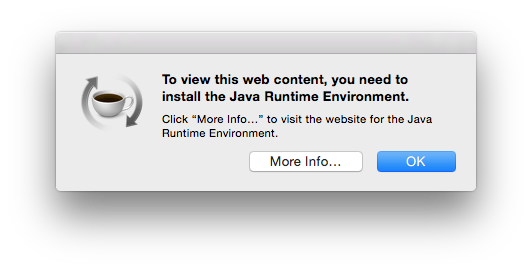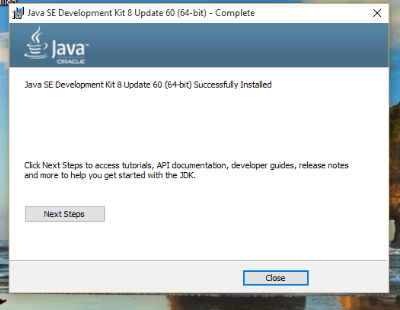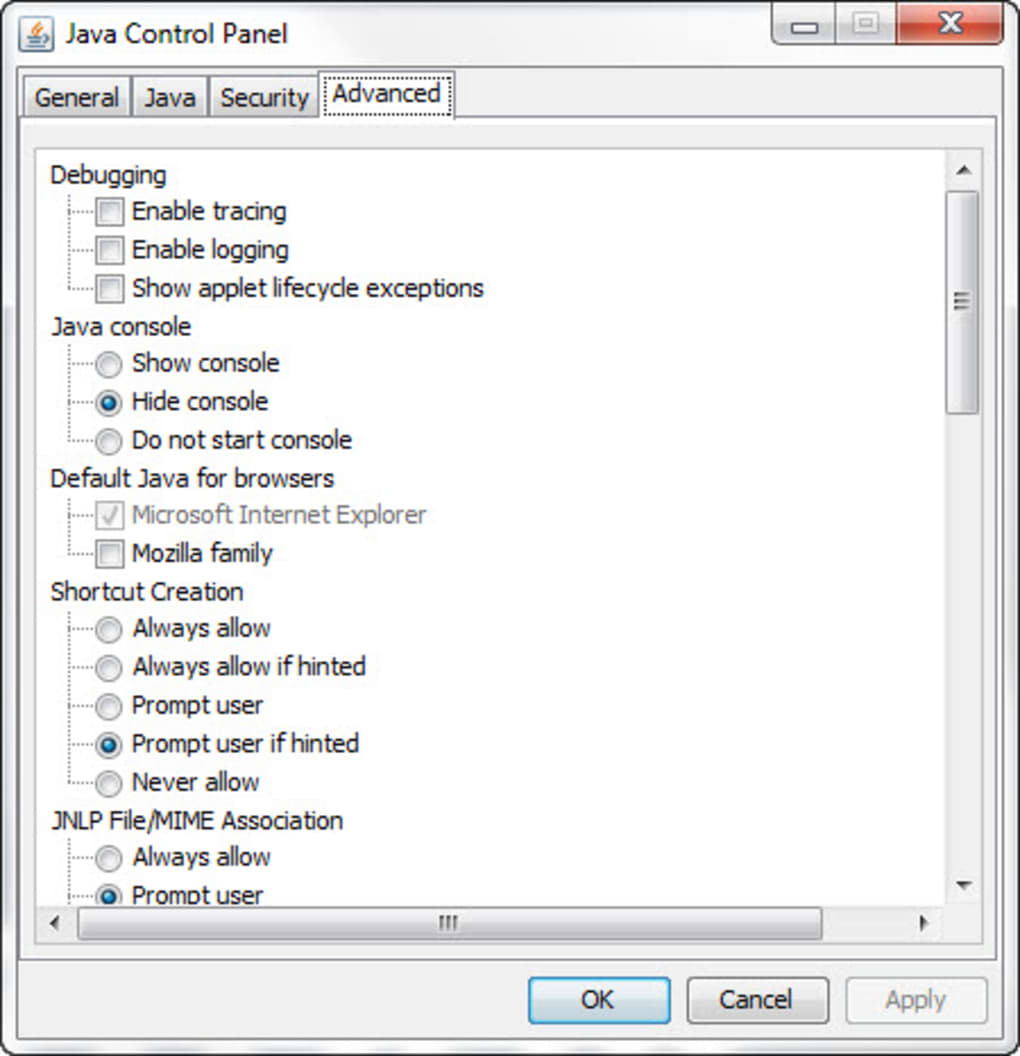

- #Java se runtime environment 8 popup install#
- #Java se runtime environment 8 popup software#
- #Java se runtime environment 8 popup download#
The modified /etc/environment file Step 4: Inform the System About the Location of the Java Installation Here is the edited environment file to help you see where you need to add these paths and variables. Once done, add this environment variable at the end of the file: JAVA_HOME="/usr/lib/jvm/jdk-11.0.7" Make sure that colons separate the PATH variables. This is how the environment file looks like before any modification: The /etc/environment file before making any modification.Īfter opening the file, you will need to alter the existing PATH folder by adding the following bin folder: /usr/lib/jvm/jdk-11.0.7/bin However, you can use any other text editor that you like. We have used the nano text editor for this tutorial.

To do this, first, you will need to open the environment variables files by entering this command in the terminal: $ sudo nano /etc/environment Next, you will need to configure your system so that Oracle JDK 11 runs smoothly. If you have downloaded it elsewhere, then change the pathway accordingly. Note: This command states that the jdk-11.0.7_linux-圆4_ is located inside the /Downloads folder. Next, we will extract the downloaded file to this directory using this command: $ sudo tar -xvzf ~/Downloads/jdk-11.0.7_linux-圆4_ Extracting the downloaded JDK file We will need to enter the following command to change to this directory: $ cd /usr/lib/jvm Sometimes, you might already have this file in your system, in which case, the above command will generate an error message telling you the “file exists”.Įither way, your system has the /usr/lib/jvm directory. To do this, open the terminal and type in the following command: $ sudo mkdir /usr/lib/jvm Next, you will need to create a new directory folder where you will extract the contents of the downloaded file.
#Java se runtime environment 8 popup download#
Step 1: Download the Oracle JDK fileįirst, you will need to head on over to the official Oracle JDK website and download the latest JDK: jdk-11.0.7_linux-圆4_ as shown in the image below: JDK Step 2: Extract The File To A New “JVM” Directory Here is a step-by-step process, so you can methodically follow the installation procedure.
#Java se runtime environment 8 popup install#
As such, to install Oracle JDK 11 on your system, we must follow a workaround. Unlike OpenJDK, Oracle JDK isn’t available via package managers because of terms related to licensing and distribution. Note : We recommend installing Oracle JDK 11 because it is the current LTS (Long-Term Support) version, and will receive updates and support till 2026.
#Java se runtime environment 8 popup software#
However, some software requires you to have the official Oracle Java Development Kit (JDK) installed on your system. OpenJDK should be enough to help you run most Java-based applications on Pop!_OS. Here’s a step by step guide on that to help you out. However, if you want to install the official Oracle JDK, then you will need to follow a completely different method. So, this is how you install JRE and JDK from OpenJDK.

You should see an output similar to the one shown below: Checking Java version To verify that JDK has been appropriately configured, you can check the version of the Java compiler on your system using this command: $ javac -version This time, you should see an output similar to one shown in the below image: Java installed

To make sure that Java is correctly installed on your system, enter the same command as before: $ java -version With both JDK and JRE installed, you will be able to run all Java-based software on your Pop!_OS system. To install the default JDK – Java Development Kit from OpenJDK 11, you will need to enter another command: $ sudo apt install default-jdk This command will only install the default JRE – Java Runtime Environment from OpenJDK 11. To install Java on your system, you can type in the following command: $ sudo apt install default-jre However, in case it is not installed, you will get the following message on screen: Java not installed If Java is installed, it will show you the version number of the JRE. Next, enter this command to check if Java is installed on your system.


 0 kommentar(er)
0 kommentar(er)
